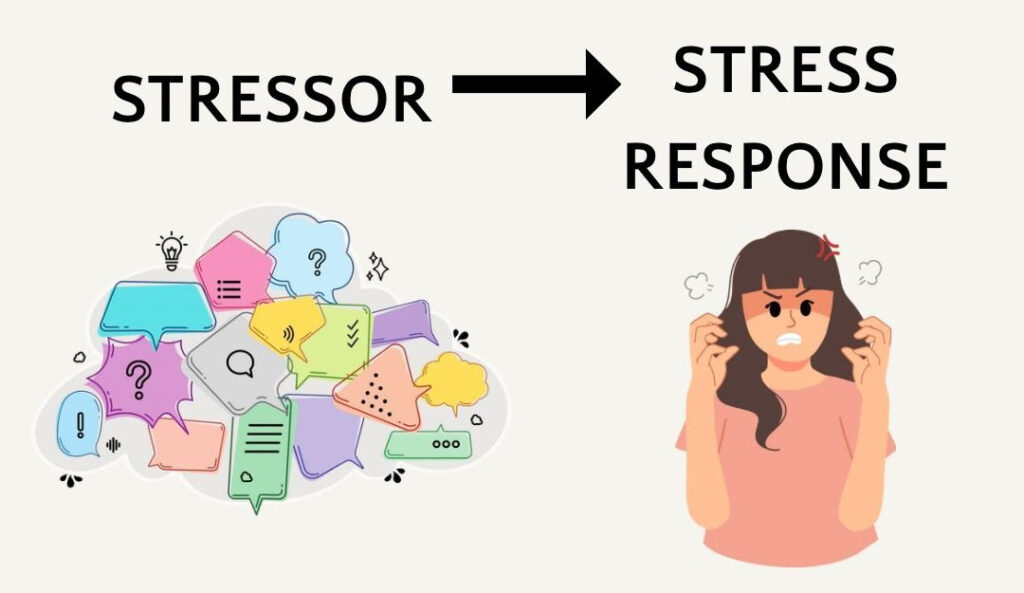If you want to prevent burnout, it’s crucial to master stress management.
At its core, burnout is the culmination of unmanaged stress. And unless you’re a robot, you’re dealing with stressors on a very regular basis. That’s normal. There is no way to avoid dealing with stressors if you’re living, but you DO have control over how you RESPOND to them.

But before I delve into stress management techniques, let me take you back to a night earlier this week…
I sat in cozy clothes on my bed beside my daughter for our evening ritual of sharing stories and, usually, giggling uncontrollably. However, on this particular night, I felt irritability welling up inside me. My breaths were shallow, and my pulse raced. Tension gripped my body, making it difficult to be present in the moment. Moments I typically treasure were now tainted by a sense of overwhelm and depletion. I told my daughter I needed a quick bathroom break.
As I walked away, I felt the weight of unmanaged stress on my body and mind. I sank to the bathroom floor, arms folded tightly, buzzing with tension, and thought, “Don’t I know better? How did I end up here? I should have done more to prevent this…” My mind continued to criticize me for feeling overwhelmed and the genuine impact of stress.
Fortunately, years of practice allowed me to intercept this inner noise after a couple of minutes. Here’s what I did, right from my bathroom floor, in less than 5 minutes to reset (this is where you put on your stress-management hat!):
- Awareness: I acknowledged how I felt. I told myself, “I feel icky and overwhelmed.” Simply naming our emotions can shift the dynamic immensely, often referred to as “name it to tame it.”
- Recognize what’s in my control: I did an abbreviated version of this and still found it helpful. In my control: how I respond to stress, self-soothing, setting boundaries, and my self-talk. Outside my control: others’ expectations/feelings, the past, and the outcome of my efforts.
- Acknowledge what’s outside my control and let it go: For me, this meant realizing that I didn’t need to beat myself up for not taking better care of myself over the past few days. I could let that go and focus on the present.
- Examine what’s in my control: What can I eliminate, defer, or delegate? What expectations can I adjust? For me, this meant letting go of “perfect” expectations and setting more realistic ones, considering my current energy. It meant deferring tasks to the next day and reevaluating what I could reduce after an evening of rest and reconnection with my family.
- Emotional and physical stress: After this pragmatic work, I focused on deep breathing—inhaling for 4 seconds and exhaling for 8. Then I gave myself a soothing butterfly hug (watch a video tutorial), which can be very comforting during moments of emotional distress.
After working through these steps and calming my nervous system, I returned to bed and engaged in a meaningful conversation with my daughter. I focused on her presence and the stories she was sharing. I fully savored her infectious laughter and hugged her tightly.

For me, stress management is an ongoing journey that only works when I intentionally put in the effort to address stress and my response. However, the rewards are immeasurable—both for myself and my ability to be present in my relationships, ensuring I don’t miss precious fleeting moments that light me up.
If you find yourself in a similar situation, I’d like to leave you with three reflective questions:
- If a loved one felt the way I do now, what would I observe in them? Is there any insight I would want to share with them from my perspective?
- When I’ve felt this way in the past, what actions or thoughts have been unhelpful? Why? What could have been beneficial then or proved useful for me?
- In 6 months, when I look back at this time, what do I hope to see for myself? How can I take steps towards that vision?
Regardless of where you are on your stress management journey, what you have or haven’t done, remember that you are worthy of experiencing ease.


